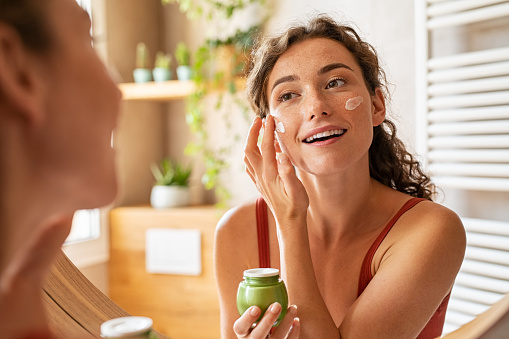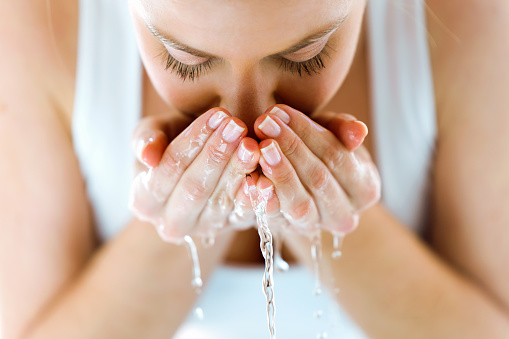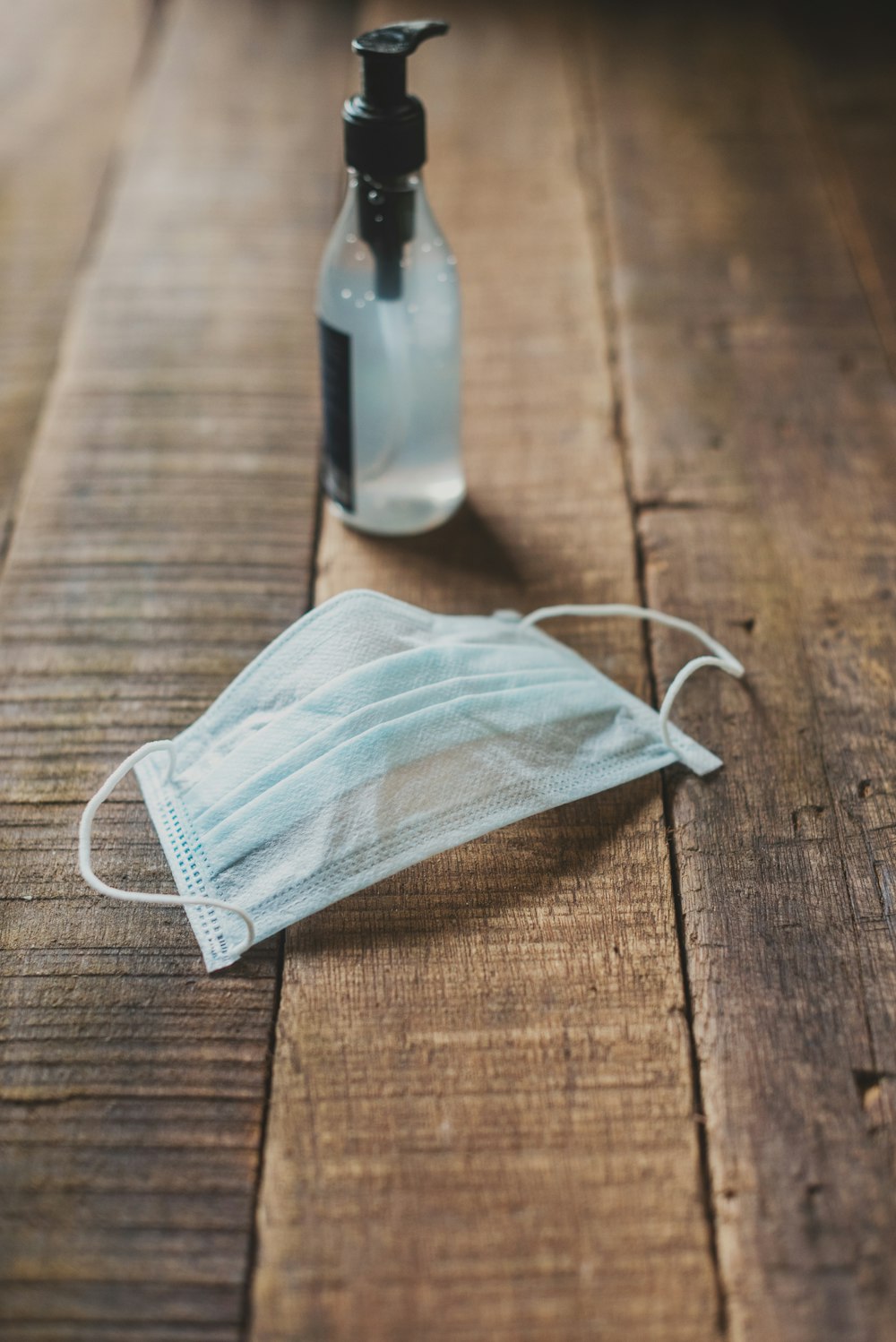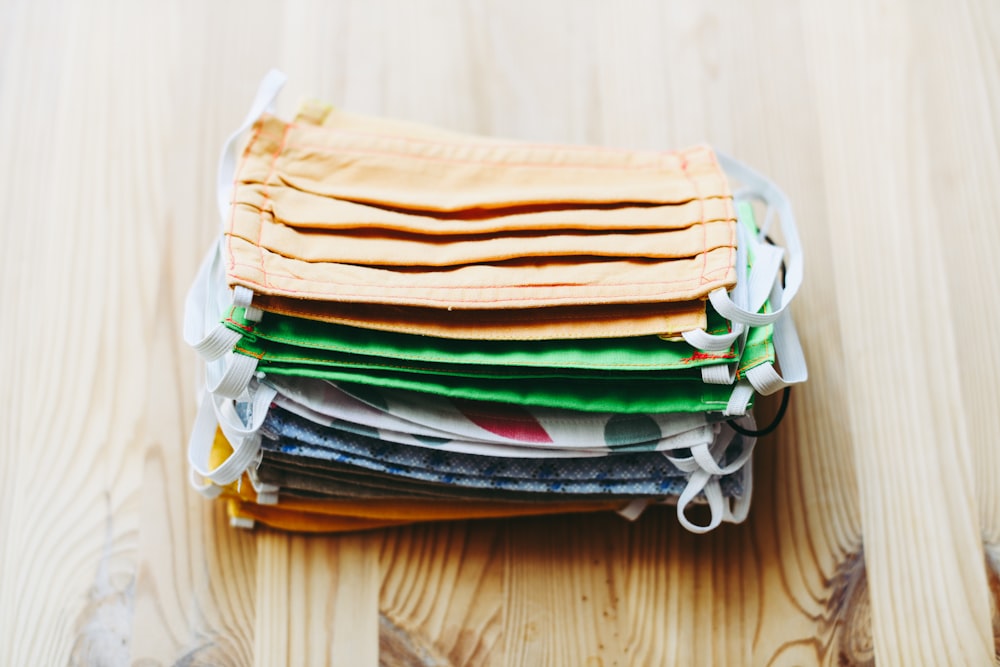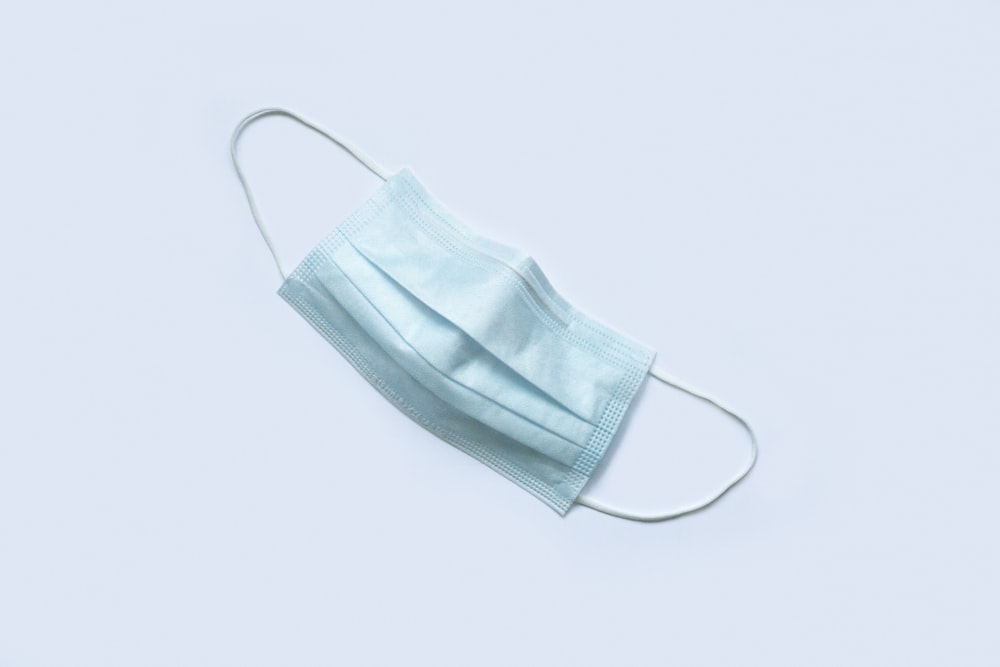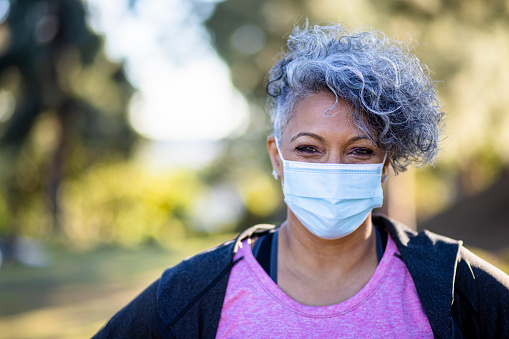Maskne: Ways to Prevent Acne Breakouts from Wearing Face Masks

Wearing a face mask is an easy way to prevent the spread of germs and sickness, especially during these times. However, it can also cause acne breakouts. The article will provide helpful tips on how to prevent acne breakouts from wearing face masks.
What is a maskne?
Wearing masks on a daily basis might cause your skin to become more oily, which can clog pores and lead to pimples. These pimples are called "maskne". Maskne is caused by increased sebum production that occurs when the skin becomes irritated. The good thing is that maskne can be prevented and treated easily if you know how to do so.
Masks that can cause acne breakouts
There are different kinds of masks that can lead to acne breakouts, such as those made from rubber, paper, plastic, or fabric. Rubber masks usually contain high concentrations of SLS (Sodium Lauryl Sulphate), and similar to chemical peels, they may cause the skin to become dry and flaky. Paper masks can cause acne because most of them contain alcohol which can dehydrate the skin and irritate it. Cloth masks are usually made up of cotton that absorbs oxygen from the skin and can thus cause blemishes. Plastic masks can also cause acne because they contain a high concentration of chemicals that can irritate the skin.
Acne breakouts from face masks
Most people who wear face masks that contain rubber, paper, plastic, or fabric usually do not experience any side effects at all. However, there are some cases where users have experienced negative reactions to wearing these kinds of masks and have developed redness and rashes on their faces. In some other cases, such as when wearing rubber or paper masks for too long, users may experience tightness and bodily discomforts like dry lips and breathlessness due to the lack of oxygen in the mask caused by strong adhesive used in order to make them stick firmly onto the skin.
Can face masks cause acne?
Sudden outbreaks of acne are often linked to wearing face masks. Acne is caused by clogged pores, which lead to infections. Most face masks are worn during cold or flu season when people are more likely to be exposed to germs. Wearing a face mask puts the skin in close contact with oil, dirt and germs, which can cause an outbreak of acne even if they're not visible on the surface of the skin.
Ways to prevent acne breakouts from wearing face masks
There are many ways that you can prevent acne breakouts from wearing face masks:
1. Wash your face with a gentle cleanser before and after wearing the mask.
You should wash your face with a gentle cleanser that is recommended by a dermatologist before and after wearing the mask. Dirt and oil can be trapped in the pores and cause acne breakouts. After removing the face mask, a gentle cleanser can help wash away any dirt or oil that is trapped between the skin and the mask so that they do not cause an acne breakout. It's also important to remove all make-up from your face, including mascara and eyeliner.
2. Apply moisturizer to your skin before putting on the mask.
Thoroughly dry your face with a towel after washing it. Then, don't forget to apply a moisturizer to your face before putting on the mask. A moisturizer that is oil-free and paraben-free is the best choice.
Keeping your skin moisturized prevents dry, flaky skin. When applying a moisturizer, be sure the mask isn't in direct contact with your skin. Avoid using heavy cream-based products in conjunction with face masks.
3. Use an oil blotting paper.
If you develop acne breakouts from wearing face masks, try preventing them by blotting the facial oils away every 10 to 15 minutes while wearing the mask. Many types of facial blotters are available at drugstores and supermarkets. Acne remedies are also available over-the-counter. Try to use them twice a day for two weeks to see if they help prevent acne breakouts caused by wearing face masks.
4. Use a non-comedogenic moisturizer.
If you develop acne breakouts from wearing face masks, try preventing them by using moisturizers and exfoliants that are non-comedogenic. Also, make sure to check the expiration date on any medication you use to treat acne before purchasing it, then use it twice a day for two weeks to see if it helps prevent acne breakouts caused by wearing face masks. If your skin becomes too dry, red or irritated when using such products, consult a dermatologist about alternative treatments and medications.
5. Wear masks made with natural fibres when possible.
Prefer to use masks made of natural fibres as much as possible, such as cotton or silk, instead of polyester that can trap sweat and oil underneath it.
Wear masks that are made from natural materials like bamboo fibre, which is hypoallergenic and anti-bacterial for sensitive skin types.
6. Rinse your face with warm water after taking off your mask.
After you take off your sheet mask, wash away the residue left on the surface of the skin by rinsing it with warm water instead of scrubbing it harshly since this can irritate or worsen acne breakouts caused by wearing face masks.
7. Do not re-use face masks.
Do not re-use face masks to prevent acne breakouts. Most face masks are meant for single use so that users can avoid skin irritants caused by the accumulation of dead skin cells on the surface, which can lead to further breakouts.
To prevent acne breakouts caused by wearing face masks that contain BPA (a chemical found in plastics), always discard them after one use, even if they are hygienically wrapped up still. The BPA residue is likely to cause irritation when you wear the mask again, which can worsen acne breakout.
So, do not forget to discard used face masks after one use!
8. Remove your make-up before you go to bed.
Please don't wait until the morning to wash off make-up as it may contain bacteria that could be leading to acne breakouts when sleeping or wearing face masks for long periods of time. Wash your face soon after you take it off for clean, beautiful skin.
9. Get enough rest and drink lots of water.
Hormonal changes can lead to acne breakouts, so make sure you get enough rest each night and drink at least eight glasses of water daily. This will keep your skin hydrated and healthy, which will help prevent future outbreaks from wearing face masks or getting too little sleep.
10. Ensure masks fit properly.
Ensure masks fit properly without exposing your nose or mouth area to the outside environment to avoid contamination.
You can either buy cosmetic masks with ear loops in some pharmacies and online stores or cut slits on the sides of a regular disposable mask, so it fits better around your ears.
11. Never leave on your face mask for too long.
You should never leave it on for more than 15 to 20 minutes, even if it feels like the material sticks better to your face when wet. Leaving it on longer can trigger breakouts, especially during summer months when hot weather exacerbates acne flare-ups.
12. Stay away from oil-based products when wearing face masks.
Since some people tend to get oilier in certain parts of their faces, it's best to stay away from oil-based products such as moisturizers or toners before applying a face mask. Wait for at least 30 minutes after washing your face with a cleanser so that the skin is completely dry.
13. Rinse your face with cold water before putting on face masks.
Before wearing your mask, quickly wash your face with cold water to close up open pores and firm skin. This will leave you feeling refreshed and prevent dirt from entering the pores again.
14. Wash your cotton face mask after each use.
Cotton masks should be washed after each use, as their surface can become a breeding ground for germs.
15. Boost your collagen stores.
Boosting collagen can help prevent breakouts by maintaining a strong surface structure of the skin to resist bacteria. Once you start using vitamin-enriched products regularly, you will begin to notice an improvement in acne scarring and corresponding redness within about four weeks!
You can try our collagen supplement Kolla Code Collagen for your collagen needs. Kolla Code Collagen has a unique formula that is fast-absorbing and contains ingredients to boost collagen synthesis, including Acerola Cherry, Bamboo Extract, 'Horsetail' Extract, and Marine Type 1 Collagen.
This is a new breakthrough supplement that unlocks your body's code at a molecular level. Unlike other collagen supplements, Kolla Code Collagen focuses on delivering the right type of collagen and making sure your body can properly absorb it.
The primary function of collagen is to add volume and elasticity to your skin. However, as you age, the ability of the body to naturally produce collagen begins to diminish.
16. Manage your stress levels.
Stress is also one of the leading causes of acne breakouts, so managing it can go a long way toward preventing any future flare-ups! Exercising regularly and establishing good sleeping habits are two good ways to keep stress under control.
17. Take vitamin C.
Vitamin C can help prevent acne breakouts in a few different ways. To start, the antioxidant properties in vitamin C may be able to reduce inflammation and redness from past breakouts. In addition, vitamin C has been shown to have anti-bacterial effects that may help clear out pores before they become clogged with excess oil and bacteria!
Should you use surgical masks or reusable cloth masks?
This is probably the most common question we always get. While both can be used to keep your skin clean, reusable cloth masks must first and foremost be properly washed and disinfected before every use. On the other hand, surgical masks cannot be easily cleaned and can re-introduce contaminants into your skin after each use.
Pros and cons of using surgical masks:
Pros:
- come in a wide variety of designs and materials.
- are disposable, so they don't need to be cleaned or washed between uses.
- can easily be used by people who have skin sensitivities and allergies to facial products.
Cons:
- may contain latex and other allergens for people with sensitivities.
- disposable masks, from an environmentalist perspective, add to plastic pollution.
Pros and cons of using non-medical cloth masks:
Pros:
- they are made up entirely of natural cotton fibres that are completely hypoallergenic.
- They are also free from any dyes or chemicals, which makes them ideal for users with sensitive skin types or conditions like eczema or psoriasis!
- Moreover, these masks help keep your pores clear since the only thing touching your face is% cotton fibre = no contaminants.
- One can re-use these masks, which makes them more environmentally friendly than their disposable counterparts.
- 100% natural cotton and hypoallergenic = no skin irritations or conditions caused by contact with the mask.
Cons:
- thicker cloth masks make it harder to breathe through your nose.
- some designs and prints may not be ideal for you to wear a reusable mask.
- You would probably have to wash them before using them again, which costs water and time that could otherwise be spent relaxing!
What's the best way to wash reusable masks?
Cotton masks, especially those made from 100% natural fibre, tend to get molds easily because they're porous by nature. Using one more than once risks exposing your skin to bacteria that may have formed during previous uses. Even if it doesn't look dirty or smell funny, make sure you replace cotton sheets every time you use them on your face!
How frequently should we replace our masks to avoid pimples?
There is no specific amount of time needed to change your mask to avoid acne-causing pimples, yet washing your face twice a day has been proved to help keep your skin healthy and clear.
But, when we say there is no specific amount of time to wear your mask, it doesn't mean you can wear your mask as long as you want. In fact, in some countries, it was suggested to have surgical masks changed every 4 hours.
In reality, the surgical mask can be worn longer if:
- it doesn't look soiled
- the filtering part of the mask didn't get wet
- the mask has not lost some of its parts: elastic, filtering part.
- there were no potentially infectious droplets splashing onto the mask.
- there's no holes or tears
Read more about the proper use of non-medical masks from the Government of Canada's page.
Is it OK to wear make-up with a mask?
Avoiding make-up while wearing a mask may help reduce acne breakouts. However, it is still safe to apply cosmetics while wearing a mask. If you do, be sure to follow the guidelines above carefully.
Other skin problems that can be caused by wearing a face mask
Other common face mask skin issues reported by mask wearers include:
Allergic contact dermatitis
Some masks constructed of plastic, for example, may contain a chemical that causes an allergic response. Polypropylene surgical masks are made with formaldehyde and bronopol. These chemicals are known to cause skin rashes.
Signs of allergic contact dermatitis include:
- Redness
- Itching or stinging
- Blisters may be present in severe cases
- Inflammation of the affected area
Residual scar tissue may remain even after breakouts subside. It is crucial to talk with your dermatologist about a proper skin care regimen if you experience signs and symptoms of allergic contact dermatitis. It's a good idea to stop wearing face masks if you notice signs and symptoms of an allergic reaction.
Facial eczema
Wearing a mask for too long may cause facial irritation, which leads to itching and scratching. This can lead to chronic dryness or eczema flare-ups in sensitive areas around the eyes, mouth, cheeks or forehead. Facial eczema may present itself as a scaly rash around the eye, nose, mouth and cheeks.
Facial eczema can be especially difficult to manage because areas affected by facial eczema tend to be rubbed or scratched more frequently. According to the American Academy of Dermatology, using skincare products that are not labelled "hypoallergenic" or "fragrance-free" can exacerbate the condition.
Folliculitis
If yeast or bacteria invade hair follicles, irritation can occur. Once the hair follicles become irritated, they are more likely to break and become infected, causing folliculitis.
Folliculitis is generally treated by keeping the affected area clean and applying a warm compress for up to ten minutes several times per day. If an infection is present, an antibiotic or antifungal cream may be prescribed.
You know you'll have folliculitis when, in addition to tiny red bumps and pustules, you have pain, tenderness or itching. Your doctor will take a culture of your skin to identify the bacteria so you can get proper medication.
Irritation and dryness of the skin
If your skin is very sensitive, wearing a face mask may expose you to chemicals in the plastic. These may cause irritation and dryness of the skin in some cases. If you let irritation and dryness go on for too long, you may have to deal with increased oil production or dermatitis.
But, even if your skin is not sensitive, wearing a face mask can be drying. This means you'll have to moisturize more often and possibly use a humidifier in your home during the cold winter months when the heating systems dry your skin even more.
Rosacea
Mask-wearing can aggravate rosacea flare symptoms, which are typically exacerbated by heat and stress. Rosacea flare symptoms include redness, flushing, swelling and acne-like pimples. While a face mask may temporarily reduce the appearance of rosacea flare symptoms, using a mask can cause a breakout.
Seborrheic dermatitis
If you are already experiencing flaky skin on your face, wearing a mask can further irritate the condition. It can even cause seborrheic dermatitis and spread across your skin. Symptoms of seborrheic dermatitis include flaky or seborrheic-like scales, redness and swelling.
Seborrheic dermatitis happens when dead skin cells accumulate in your pores and cause acne-like breakouts. Wearing a mask during this time can trigger the onset of seborrheic dermatitis symptoms, making them worse.
Staph infection
Tight-fitting masks put pressure on the skin, and this can trigger or worsen pre-existing conditions that involve pus-filled blisters. There is also concern that people with weakened immune systems have an increased risk of contracting staph infections when wearing medical face masks.
Staph is short for Staphylococcus, a type of bacteria that is resistant to many antibiotics. Staph bacteria may enter the body through broken skin, and any break or crack that has come in contact with staph can cause an infection.
Remember: Prevention is key when it comes to preventing acne breakouts.
Preventative measures are critical when it comes to avoiding acne breakouts. From ensuring masks fit properly to staying away from masks containing plastic materials, there are a number of healthy habits that can help.
When is the best time to book a doctor's appointment?
Another important question is, when do you need to go to the doctor. So, keep the following in mind:
- If you started to have rashes, persistent acne and severe pimples, then it is time to schedule an appointment with a dermatologist.
- If you have recently started having acne breakouts after wearing masks, especially when they contain plastic materials, then you should start by booking an appointment with your dermatologist.
We hope you enjoyed reading this blog post. Don't forget to subscribe to our blogs to get notified whenever we publish a new article. If you have any questions, feel free to ask us by using the comment section below or sending an email to our support team, and we will try our best to reply as soon as possible!
Cheers to a maskne-free life!
We hope you enjoyed reading this article. Don't forget to subscribe to our blogs to get notified whenever we publish a new blog. Also, make sure to share this with your family and friends! Cheers to a maskne-free life!

